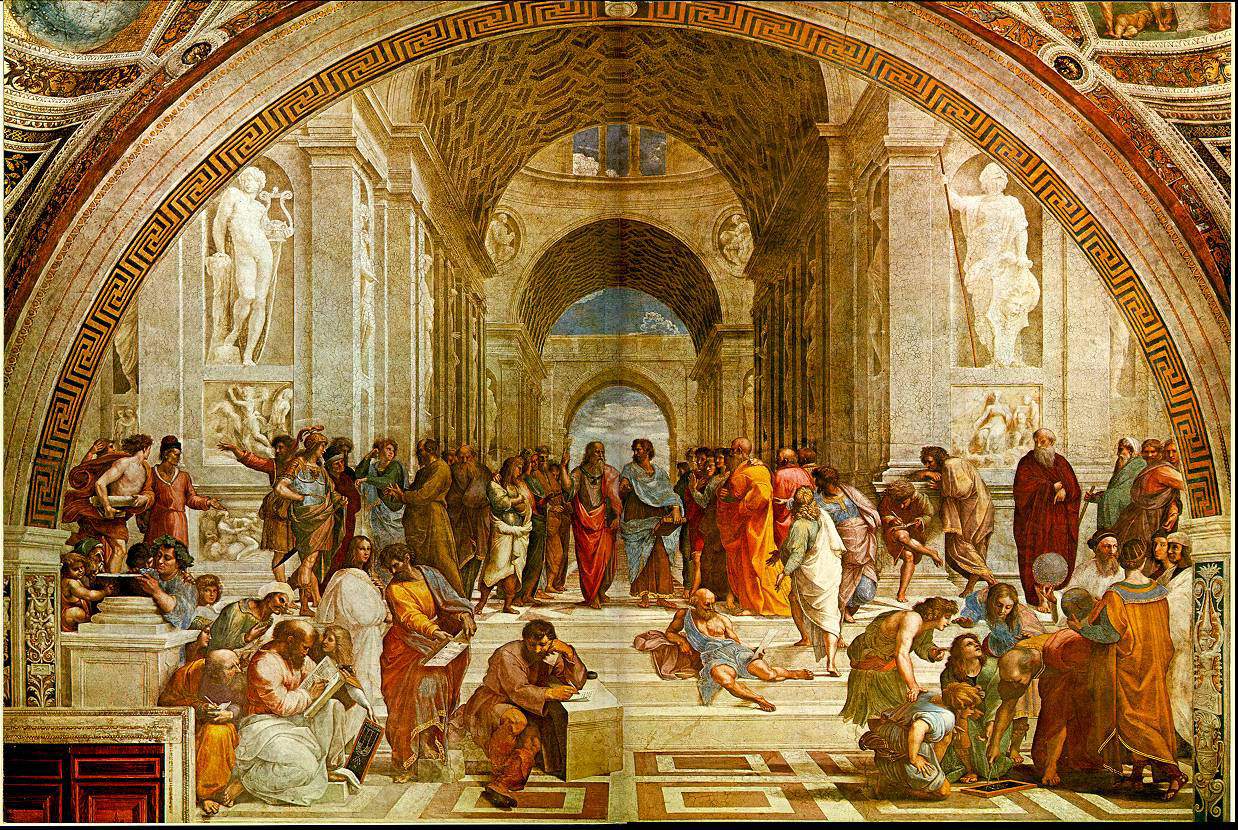Serendip is an independent site partnering with faculty at multiple colleges and universities around the world. Happy exploring!
Some rambling and a question for the class

In Price’s introduction she mentions the sanctity of knowledge, the ivory tower of thought only open to the privileged genius of our era, the perfect academic who can meet with other academics in their spheres of thought, to sit and talk at length about theories of the universe or the meaning of life. When I read this I immediately thought of Renaissance paintings such as Raphael’s School of Athens. That ideal of academia, Plato and Aristotle debating at length under the majestic stone archways, walking the tiled halls with fellow thinkers pushes out, as Price said, the teacher who can’t sit in a staff meeting or the child who can’t control their outbursts in class. We are constantly barraged by images of the perfect; models whose size and proportions have been digitally altered for magazine covers, students who score perfect SAT or ACT scores and not only are admitted to every Ivy League school but receive a full ride on a sports scholarship. Rare are the John Nashes and the Marlee Matlins who occupy the spotlight in our world today.

So what would our academic utopia be? In our last class most of us seemed to agree that the utopias we thought up were not very nice places. While schools always include an array of different components in an application, the fact of the matter is that grades and test scores always trump everything else. As a poor test taker myself (with no major learning or cognitive disabilities) I would love for grades to be based less on your instantaneous recall of material in a timed setting, but I don’t have any alternatives to offer. In the “real world” you aren’t deprived of a periodic table, a calculator, or a dictionary. You aren’t called a cheater for collaboration, and under most circumstances you won’t need to recall significant information and bubble in numbers and letters in one-hour time chunks. Tests favor specific people, necessarily disfavoring others. They are convenient measuring tools for people who don’t know us to judge how well we will perform other places.
So what are some other tools that academia can use to better measure ability and potential? Would it be better to require more tests like the SAT, ACT, GRE, MCAT but have it set up so that one measures recall, another measures application, another measures interpretation, etc? That way instead of only a breakdown by subject (math, English) there would be further breakdown by uses of knowledge.
Any thoughts?
Also sorry the image is so big but the larger it is the better it is!



Comments
Also a friend just posted
Also a friend just posted this quotation on Facebook that I thought I would share...
“Our own society makes a great use of this plot. It assigns different roles to the two sexes, surrounds them from birth with an expectation of different behavior; plays out the whole drama of courtship, marriage, and parenthood in terms of types of behavior believed to be innate and therefore appropriate for one sex or for the other”
~ Margaret Mead